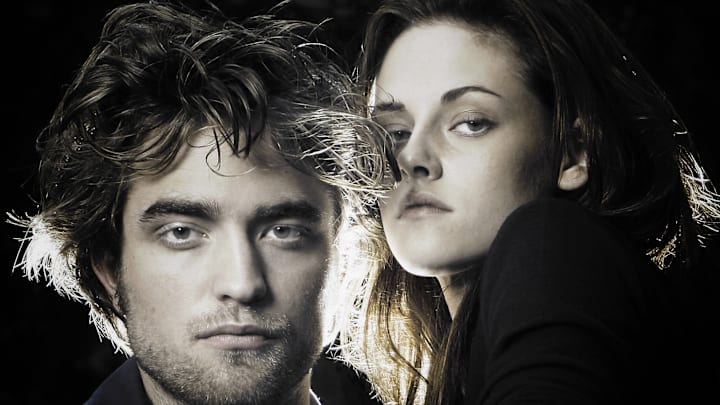The Godfather (1972). Jaws (1975). The Wizard of Oz (1939). Forrest Gump (1994). Jurassic Park (1993). Odds are that more than a few of your favorite movies are based on a novel with a clearly delineated plot and fleshed-out characters, making them ripe for the Hollywood treatment.
Recently, word puzzle help site WordFinderX looked at the authors behind the most financially and critically successful book-to-film adaptations. Some are obvious—Warner Bros. printed money with J.K. Rowling’s Harry Potter franchise—but others might come as a surprise.
The authors with the most financially lucrative adaptations, both living and dead, are highlighted below:

Many of Michael Crichton’s books—including The Andromeda Strain, Rising Sun, and Disclosure—have been adapted for film, but his 1990 novel Jurassic Park and its many sequels are what earns him a top spot on the list. Ditto other franchise authors like J.R.R. Tolkien (The Lord of the Rings), Ian Fleming (James Bond), and Stephenie Meyer (Twilight). And though he probably couldn’t have imagined it in his lifetime—movies hadn’t been invented yet—Hans Christian Andersen’s The Little Mermaid andThe Snow Queen became Disney mega-hits, with the latter inspiring Frozen in 2013.
Two names might be less familiar: William Steig, a kid-lit author whose Shrek! inspired the animated film series, and Chris Van Allsburg, whose Jumanji led to the 1995 adaptation and its reboot. (He also penned The Polar Express, later a CGI film starring Tom Hanks.)
Stephen King is the sole name on the list whose adaptations aren’t franchise-based, though plenty have gotten sequels, like 2017’s It and the seemingly endless Children of the Corn series (11 films and counting).
There isn't always a correlation between a movie making boatloads of money and its critical reception. This graphic from WordFinderX shows which authors adaptations have consistently ranked highly with reviewers, as compiled by Metacritic:

Save for Tolkien and Andersen, there’s not a lot of overlap. Walter Tevis is not a Hunger Games-level phenomenon, but the films based on his works The Hustler, The Color of Money, and The Man Who Fell to Earth (starring David Bowie) were widely acclaimed.
Crime novelist James M. Cain runs a close second, with adaptations of The Postman Always Rings Twice, Double Indemnity, and Mildred Pierce all critical favorites. (Cain was also a screenwriter himself, though he didn’t often adapt his own novels.)
Crime pays well for others on the list: Jim Thompson (The Grifters), Daphne du Maurier (Rebecca), and Patricia Highsmith (The Talented Mr. Ripley) all had highly-regarded film adaptations featuring their ethically compromised antiheroes.
WordFinderX also looked at authors whose adaptations garnered the most Academy Awards. The top spot? William Shakespeare, with 23 statues. Tolkien came in second with 17.
Of course, critical reviews and awards mean little if the author isn’t a fan of the end result. Roald Dahl famously disliked the 1971 film version of his Charlie and the Chocolate Factory, renamed Willy Wonka and the Chocolate Factory. The film, Dahl said, was “crummy” and Gene Wilder was “pretentious” in the title role.
